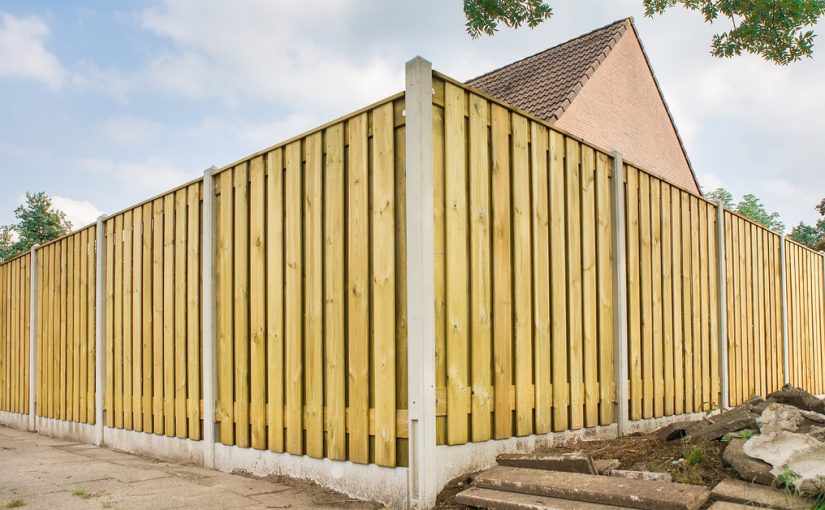(3.5-min read)
Whether your home backs up to a high-traffic area or you live in a neighborhood where the houses are closer together, privacy fences can provide a much-needed buffer. Upon shopping for privacy fencing, you’ll soon notice an abundant variety of materials available. In this piece, we’re going to weigh the pros and cons of wood, chain link, and vinyl privacy fencing options.
Wood Privacy Fencing
There’s nothing quite as residential as a wood fence. This classic choice in privacy fencing remains popular even in the face of ever-evolving metal and PVC vinyl options.
Pros: When adequately treated, installed, and cared for, wood privacy fencing has quite the lifespan. Wood can also be updated to reflect the changing color pallet of the house with new finishes or even paint schemes. In terms of color, your options are relatively open. Wood fences are also reasonably simple to repair for the amateur carpenter if they incur damage—unlike PVC vinyl or metal options.
Cons: Though the resilient, because wood is a natural material, it is among the most susceptible to damage due to changing weather conditions. Also, to keep a wood privacy fence looking its best requires periodic sanding, refinishing, repainting, and sometimes the replacement of damaged components.
Chain Link Privacy Fencing
When one thinks of privacy fencing, chain link isn’t typically the first thought. Despite this being the case, there are ways to convert this pragmatic form of fencing into a privacy fence with inserts or screens.
Pros: Chain link fencing is among the toughest, most rugged forms of fencing on this list. A properly installed chain link fence can last for decades with little to no maintenance. Also, due to the flexibility of the chain-link sections, installation is easy and sound.
Cons: There’s really no nice way to say it—chain link fences are ugly. Their flexible nature and practical application can make them an eye-sore. Though there are ways to make them look a little less prison-like, they will always follow function over form.
PVC Vinyl Privacy Fencing
Among the most advanced material on this list by far, new vinyl PVC privacy fencing options are continually being released.
Pros: Vinyl PVC privacy fencing comes in a variety of styles designed to match the aesthetic of any property. Most options come in a variety of colors that are “baked” right into the material, making repainting largely unnecessary (most options wouldn’t take a coat of paint if you tried). They’re also relatively maintenance-free, usually only requiring a quick garden-hosing or wiping down to restore their original luster through dirt and dust.
Cons: Vinyl PVC privacy fencing is neither cheap, nor is it as tough as the other options on this list. Many material types of PVC don’t stand up very well to impact. When they do break, they are expensive and difficult to fix. Also, the aesthetic of these fences are not all that changeable as they are usually too slick to hold onto a coat of paint.
When deciding upon which material of residential privacy fence is right for your property, there are several questions to ask. Does it need to look nice? Does it need to provide the maximum amount of privacy? Are you OK with periodic maintenance? Does your neighborhood’s home owner’s association have guidelines concerning fencing styles and materials? It’s important to weigh what you need in a fence before weighing your options.
For additional help with any home construction project in the Greater Tulsa, OK area, feel free to reach out to your friends at Perry Hood Properties.



